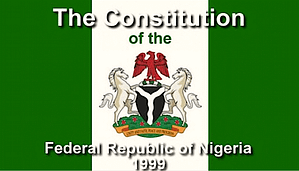
Several notable Nigerians, including ex-governors, lawmakers, and other influential leaders, have advocated for a significant overhaul of the nation’s governance framework to correct the disparities in the current federal system.
This recommendation emerged from discussions at an event hosted by The Patriots, a group led by Chief Emeka Anyaoku, the former Secretary-General of the Commonwealth. The event, held in Lagos, commemorated the decade since the 2014 National Conference and paid tribute to the late Prof. Ben Nwabueze, the group’s previous chair.
The focus was on envisioning a brighter future for Nigeria, propelled by the creation of a new constitution that promises hope and prosperity amidst the nation’s socioeconomic difficulties, political unrest, and escalating security issues.
The dialogue saw participation from a wide array of dignitaries, including elder statesmen, Lagos Governor Babajide Sanwo-Olu, past governors and senators, among others, who have been pivotal in shaping past constitutional discussions in Nigeria.
Following in-depth discussions, the colloquium proposed several urgent recommendations for the government’s immediate attention:
- “The governance challenge has deepened, necessitating cautious decision-making by political leaders as the vast majority of Nigerians earnestly seek an end to the ongoing difficulties,” noting the critical state of national affairs.
- It stressed the importance of “a genuine commitment to eradicating the culture of political impunity that fosters corruption, politicizes monetary influence, and undermines dedication and patriotism.”
- The need for “an urgent comprehensive review of the security situation in Nigeria” to enact decisive actions against the widespread insecurity.
- The group called for “reform of the existing security infrastructure,” including the establishment of state police, to foster a more inclusive approach to community safety.
- “Reconfiguring the country’s governance system and structure” was highlighted as essential to addressing the imbalances in the current federalism, ensuring fiscal responsibility, and spurring nationwide development.
- There was a push for “strengthening democratic institutions to protect democracy and ensure politicians are accountable to the populace.”
- Moreover, they advocated for “enhancing democracy and governance at the grassroots level” to ensure widespread inclusion and participation.
The assembly critiqued the 1999 Constitution for fostering “politics of alienation” and emphasized that its flawed origins render it inherently illegitimate, a status that cannot be rectified through amendments. Instead, they proposed that the 2014 National Conference’s Draft Constitution and the 1963 Republican Constitution, given their inclusive and popular nature, could serve as foundational documents for drafting a new, democratically-endorsed constitution via a constituents assembly or national referendum.
In conclusion, “the dialogue resolved to initiate a new advocacy for the actualization of a democratic constitution for Nigeria,” calling for the formation of an inclusive team by The Patriots. This team would engage with the Nigerian populace, the Presidency, and the National Assembly, securing their support for a revamped governance framework that promises national unity, stability, effective governance, and prosperity under a new democratic constitution.
Read Also: Senate Moves To Amend Nigerian Constitution To Okay State Police
